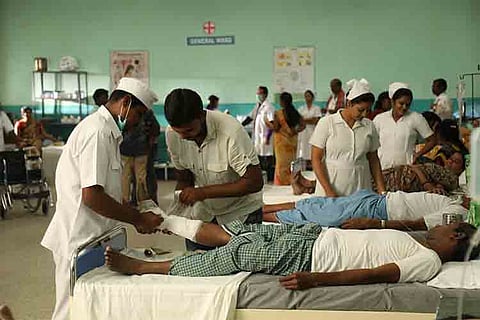

With as many as 150 cases of swine flu having been detected in Telangana, state health officials have sent out medical officials to help screen for the fever across districts in the state.
“A total of around 370 people have been screened so far in the state and of them 150 samples have returned positive,” stated Dr K Shankar, director of the Institute of Preventive Medicine, Hyderabad. He further noted that medical authorities had been sent out to various districts to help screen for and curb the spread of swine flu.
“While there have been no cases of swine flu confirmed here, we are prepared to handle any cases. A separate ward for swine flu cases has been allocated, we have the necessary masks and protective gear and have also ensured that enough ventilators are available,” Dr Narendran, Medical Superintendent of Osmania General Hospital, said.
As early as October, officials had issued memos to district health authorities stating that screening and prevention measures needed to be increased in view of the upcoming swine flu season.
Swine flu season starts around September each year and continues well into February.
The disease is caused by the H1N1 virus, which is a strain of the influenza virus. It is spread via droplets in the air and contracted from an infected individual. Some of the most common symptoms of swine flu include high fever, persistent cough, cold, sore throat, nausea, headache and vomiting. Doctors take a throat swab and send it for culture to determine if someone is H1N1 positive.
The virus is typically self-limiting, meaning that the virus will be cleared by an individual’s immune system within time; however, complications may arise and cause severe symptoms, particularly in extremely young children or the elderly. Maintaining routine hygiene practices, including frequent hand washing, using masks and other general measures, are advised by doctors to prevent the transmission of the virus.
While a vaccine is available against the virus, it is largely recommended for health officials and workers who are constantly in the vicinity of the disease as a routine. Others may opt to take the vaccine; however, it is not mandatory.